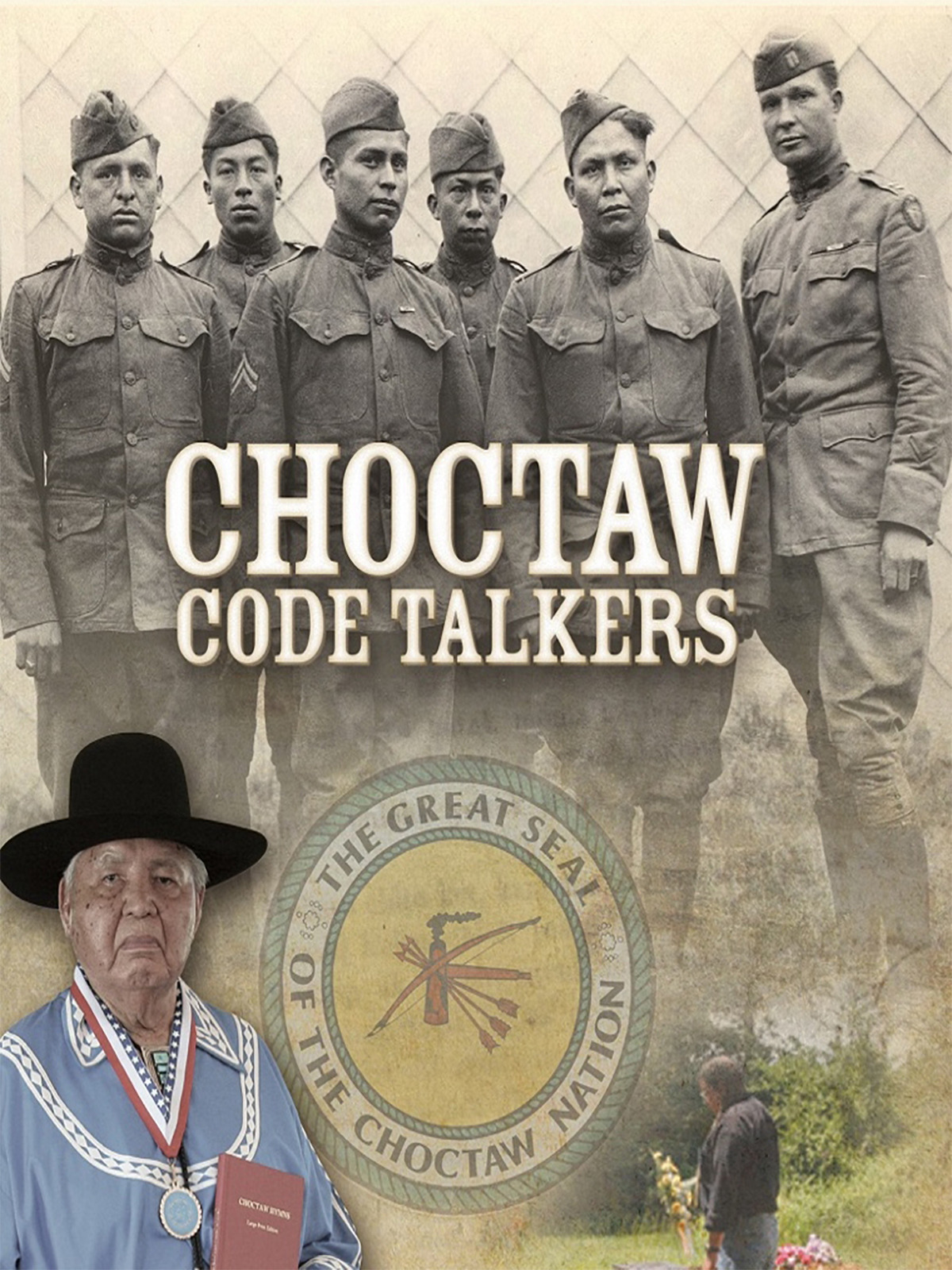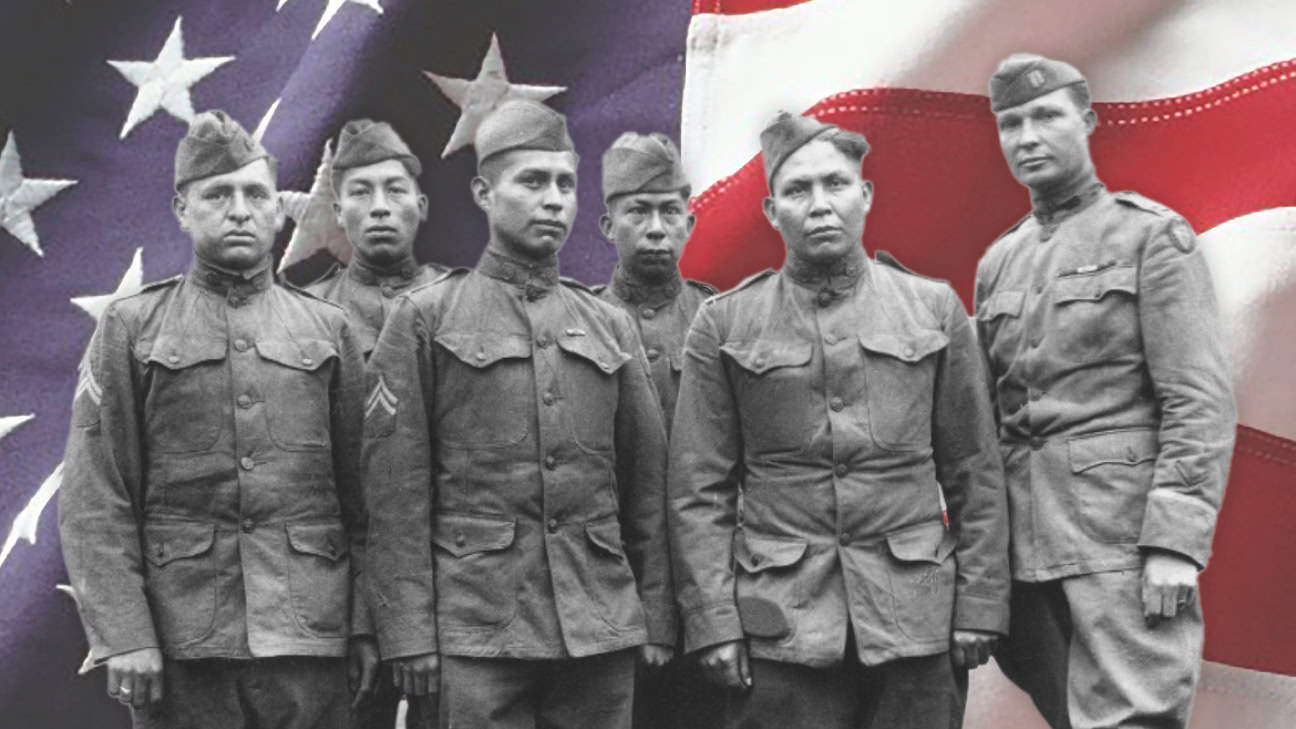
Echoes of Valor: The Choctaw Code Talkers’ Unsung WWI Heroism Finally Resonates
ATOKA, OKLAHOMA – For nearly a century, their voices were a whisper in the annals of history, a crucial secret weapon wielded on the bloody battlefields of World War I. Ten Choctaw Nation citizens, serving with the American Expeditionary Forces in France, used their native language to confound the enemy and save countless lives. Today, the echoes of their valor are finally ringing loud and clear, as belated but profound recognition solidifies their place among America’s most courageous and innovative heroes.
The story of the Choctaw Code Talkers is not just one of military ingenuity; it’s a poignant narrative of patriotism, cultural resilience, and a long-overdue reckoning with history. For decades, these men, who served their country with distinction, returned home to little fanfare, their contributions largely obscured by military secrecy and societal oversight. Now, thanks to persistent advocacy and a growing national understanding of Native American sacrifices, their legacy is being honored with the reverence it always deserved.

The Desperate Need for Secrecy
The year was 1918. The Western Front was a brutal stalemate, a labyrinth of trenches and barbed wire. Communication was a deadly gamble. German intelligence had become adept at tapping Allied phone lines and deciphering coded messages, rendering traditional ciphers dangerously vulnerable. Commanders were desperate for a secure method to transmit vital battlefield intelligence. Messages detailing troop movements, supply needs, and strategic objectives were often compromised, leading to heavy casualties.
It was amidst this grim reality that a remarkable solution emerged, born not from advanced technology, but from an ancient language. Captain Lawrence, a regimental signals officer, overheard two Choctaw soldiers conversing in their native tongue. He realized that the Choctaw language, unwritten and largely unknown outside the tribe, could be an unbreakable code. Its complex syntax, unique vocabulary, and tonal nuances made it impenetrable to anyone not fluent from birth.
"The Germans were listening to everything, tapping our lines," explained Dr. William C. Meadows, a scholar who has extensively researched Native American code talkers. "They could understand our Morse code, our English, but they couldn’t make heads or tails of these conversations in a language they’d never heard before."
The Birth of a Secret Weapon
The initial group of Choctaw Code Talkers comprised eight men: Solomon Louis, Joe Hogan, Robert Taylor, Ben Carterby, Victor Brown, Peter Maytubby, Jeff Nelson, and James Edwards. They were soon joined by Calvin Wilson and George Hunter, bringing the total to ten. These men, many of whom had faced discrimination and hardship in their own country, answered the call to duty without hesitation.
Their mission was simple yet revolutionary: translate sensitive military messages into Choctaw, transmit them over the phone lines, and have another Choctaw speaker on the receiving end translate them back into English. The process was astonishingly fast and, critically, entirely secure.
For instance, to say "machine gun," they might use the Choctaw word for "big gun." "Artillery" became "big gun shoot fast." The beauty of the code lay in its inherent ambiguity to an outsider, combined with its precise meaning for the Choctaw speakers. It wasn’t a pre-defined codebook but a real-time, adaptable communication system.

Turning the Tide at Meuse-Argonne
The Choctaw Code Talkers were first deployed during the pivotal Meuse-Argonne Offensive, one of the final and most decisive Allied campaigns of WWI. On October 26, 1918, a U.S. battalion found itself isolated and surrounded by German forces. A desperate message was sent: "Troops are going to Poteau 25th Division," translated into Choctaw and relayed. Within minutes, artillery fire from Allied forces rained down on the German positions, allowing the trapped battalion to be rescued.
Over the next 72 hours, the Choctaw Code Talkers were instrumental in coordinating troop movements, relaying ambush warnings, and delivering critical intelligence. Their rapid, secure communications played a significant role in confusing German forces, preventing ambushes, and ultimately saving thousands of Allied lives.
"It was a game-changer," said Gary White, a historian with the Choctaw Nation of Oklahoma. "The Germans were completely baffled. They heard voices, but they couldn’t understand a word. It gave the Americans a crucial advantage in a war where every inch of ground was hard-won."
The effectiveness of their method was immediate and undeniable. The American command quickly recognized the power of this "language code." General John J. Pershing, commander of the American Expeditionary Forces, later noted the "speed and accuracy" of their transmissions, acknowledging their critical contribution to the Allied victory.
A Long Silence, Then a Resounding Voice
Despite their undeniable impact, the Choctaw Code Talkers returned home to a stark reality. The need for secrecy continued after the war, as the U.S. military recognized the potential future utility of such a unique communication method. The men were ordered not to speak of their wartime service, a directive they faithfully upheld. This silence, combined with the general societal disregard for Native American contributions at the time, meant their heroism remained largely unsung for decades.
Unlike their Navajo counterparts in World War II, whose story gained prominence in the latter half of the 20th century, the WWI Choctaw Code Talkers remained in relative obscurity. Many died without ever receiving public recognition for their extraordinary service. Their families knew of their quiet heroism, but the wider world did not.
"My grandfather, Ben Carterby, rarely spoke of the war, and never of the code," recalled his grandson, Randy Carterby, during a recent interview. "He was a humble man. But we always knew he did something important. To see him recognized now, it brings tears to your eyes. It’s justice, not just for him, but for all of them."
The Fight for Recognition
The journey to recognition was a long and arduous one, spearheaded by tribal leaders, historians, and the descendants of the Code Talkers themselves. Advocacy efforts intensified in the early 21st century, as a broader understanding of Native American contributions to U.S. military history began to emerge.
In 2007, the French government recognized the Choctaw Code Talkers, awarding them the Chevalier de l’Ordre National du Mérite (Knight of the National Order of Merit), a significant gesture from the nation they helped liberate. This overseas recognition further fueled the push for U.S. federal acknowledgment.
The breakthrough came with the passage of the Code Talkers Recognition Act of 2008 (Public Law 110-420), which specifically recognized Native American code talkers from 33 tribes for their service during World War I and World War II. While the Navajo Code Talkers had received the Congressional Gold Medal in 2000, this act provided for a collective Congressional Gold Medal to be awarded to each tribe, and silver medals to be presented to individual code talkers or their next of kin.
On November 20, 2013, in a poignant ceremony in Emancipation Hall at the U.S. Capitol, the Choctaw Nation, represented by the descendants of the original Code Talkers, finally received their Congressional Gold Medal. It was a moment laden with emotion, history, and a profound sense of closure.
"This medal represents not just the bravery of these ten men, but the resilience of our people, our language, and our enduring patriotism," said Choctaw Nation Chief Gary Batton at the ceremony. "Their voices, once a secret weapon of war, now echo through history as a testament to the strength of our culture and our unbreakable spirit."
A Living Legacy
Today, the legacy of the Choctaw Code Talkers is celebrated. Their story is taught in schools, featured in museums, and shared at tribal events. The Choctaw Nation actively promotes the preservation of their language, understanding that it was not only a tool of war but a vital part of their cultural identity, nearly lost to assimilation policies.
The recognition serves as a powerful reminder that heroism comes in many forms, and often from unexpected places. It highlights the immense and often overlooked contributions of Native Americans to the defense of the United States, even as they fought for their own rights and recognition within its borders.
The Choctaw Code Talkers stand as towering figures of courage and ingenuity. Their once-secret voices, which confounded an enemy and turned the tide of battle, now serve as a loud and proud testament to the enduring spirit of the Choctaw people and their invaluable gift to the world. Their story is no longer a whisper but a resounding declaration of valor, finally given its rightful place in the pantheon of American heroes.


